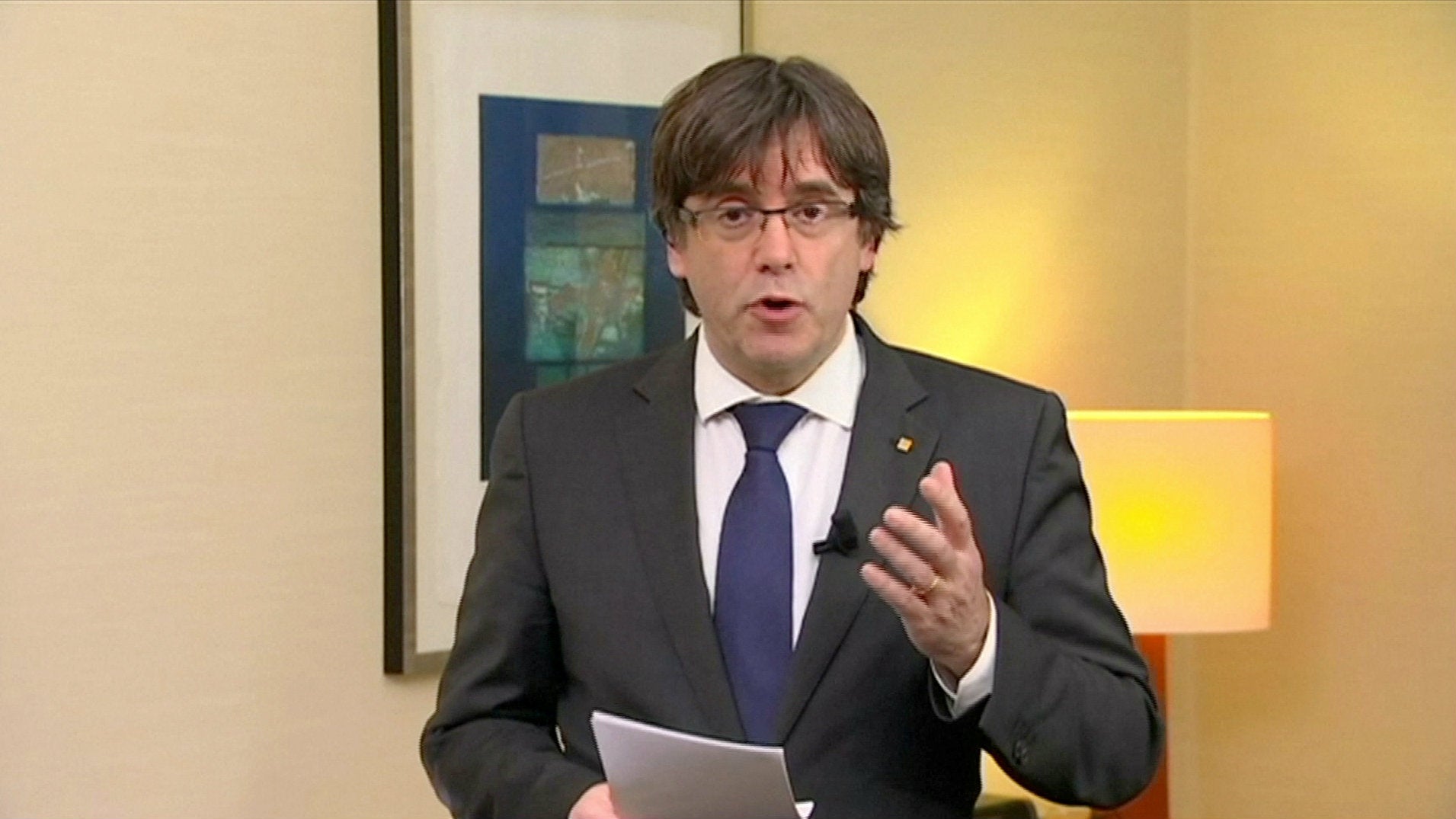Belgium has a strong case to reject the European arrest warrant for Catalonia’s leader
Spain’s central government issued European Arrest Warrants (EAW) yesterday (Nov. 3) for the former Catalan leader Carles Puigdemont and four of his allies. The group had relocated to Belgium after the Spanish government sacked the entire Catalonia cabinet following their declaration of independence.


Spain’s central government issued European Arrest Warrants (EAW) yesterday (Nov. 3) for the former Catalan leader Carles Puigdemont and four of his allies. The group had relocated to Belgium after the Spanish government sacked the entire Catalonia cabinet following their declaration of independence.
Except, there are two key hiccups in Spain’s plan: “rebellion” and “sedition.” Puigdemont and his four ex-regional government colleagues are facing those charges, in addition to misuse of public funds, for pursuing Catalan independence after the courts under Spain’s central government deemed the referendum illegal. Rebellion and sedition, however, are not part of the European Union’s list of 32 offenses (under Article 2), that don’t need to be considered a crime in both countries (the place issued and the place the person is currently in) in order for the accused to be extradited.
Puigdemont, who insists he did not flee Spain and was “not seeking asylum” when he traveled to Belgium failed to attend a high court hearing in Madrid yesterday, as did several other Catalan government officials facing arrest warrants: Meritxell Serret, former agriculture minister; Antoni Comín, former health minister; Lluís Puig, former culture minister; and Clara Ponsatí, former education minister.
Meanwhile nine others were taken into custody. Only one of those detained, former business minister Santi Vila, was freed on bail of €50,000 ($58,000).
Belgium’s government, which has a maximum of 60 days to return the suspects to Spain after the EAW issuance, would be within its rights to reject the call for extradition. According various media outlets, a Belgium state prosecutor spokesperson said they will “study” the warrant.
“The misuse of public funds” could entail an extradition, but Belgium could still reject extraditing Puigdemont and his colleagues if it believes returning them to Spain would violate their human rights, under EU law, due to discrimination based on politics. Puigdemont has said that he will not return to Spain unless he is guaranteed a fair trial.
It is understandable why there would be concerns over a fair trial. When Catalonia pursued the independence referendum, Spanish authorities first declared the vote illegal, then violently shut down makeshift polling places. However, for the over 40% that were able to cast their votes, 90% were for independence, according to the Catalan government. Spain’s reaction was to enact the “nuclear option” of triggering Article 155 and imposed direct rule over the region, sacking the Catalan government, and slapping a variety of charges on that regional government.